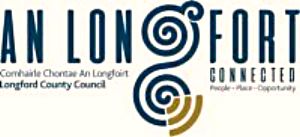
New: July Stimulus Package Key Information
RBK, Ireland's largest independently branded accounting firm have key information on the Government's new July Stimulus Package, including the Employment Wage Subsidy Scheme and how to claim interim tax refund in respect of losses incurred during Covid-19.
Employment Wage Subsidy Scheme
For the Employment Wage Subsidy Scheme the employer must be demonstrate that they are operating at no more than 70% in respect to either turnover or customer orders from July to December 2020 compared with the same period for the previous year. Employers should now reassess their position to establish if they will qualify under the new arrangements.
The Employment Wage Subsidy Scheme and the existing Temporary Wage Subsidy Scheme will run parallel until 31 August to allow workers previously excluded from the Temporary Wage Subsidy Scheme (e.g. seasonal workers and new hires) to benefit from the Employment Wage Subsidy Scheme. Click here for more information on the Employment Wage Subsidy Scheme.
Corporate Loss Relief
New measures have been introduced to provide for a temporary acceleration of Corporation Tax Loss Relief for Tax-Compliant Companies, with the aim of delivering rapid cashflow support to previously profitable companies which have become loss-making during Covid-19.
Income Tax Loss Relief
A new once-off Income Tax Relief for the self-employed (carrying on a trade or profession) has been introduced, aimed at businesses who were profitable in 2019 but, as a result of Covid-19, incur losses in 2020.
Loses (and certain unused capital allowances) can be claimed under Income Tax Loss Relief up to a max. of €25,000 carried back and deducted from their profits for the 2019 Tax Year, reducing the amount of Income Tax payable in respect of those profits.
The provisions also allow for claims for the relief to be made on an interim basis, boosting cashflow.
The provisions give an option to farmers who incur a loss in 2020 to step out of income averaging for the tax year 2020, notwithstanding that the farmer may already have stepped out of income averaging in one of the four preceding tax years.

